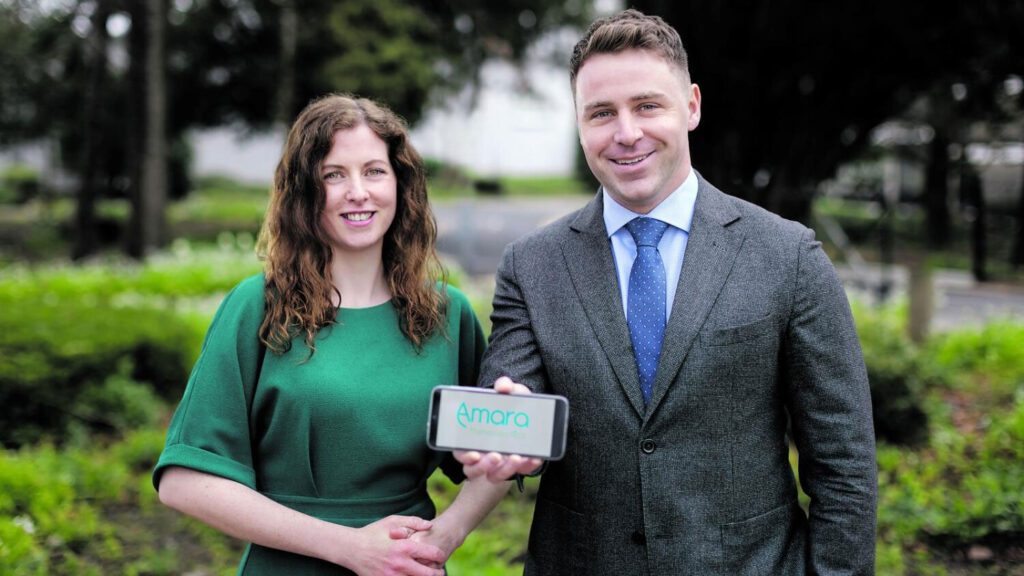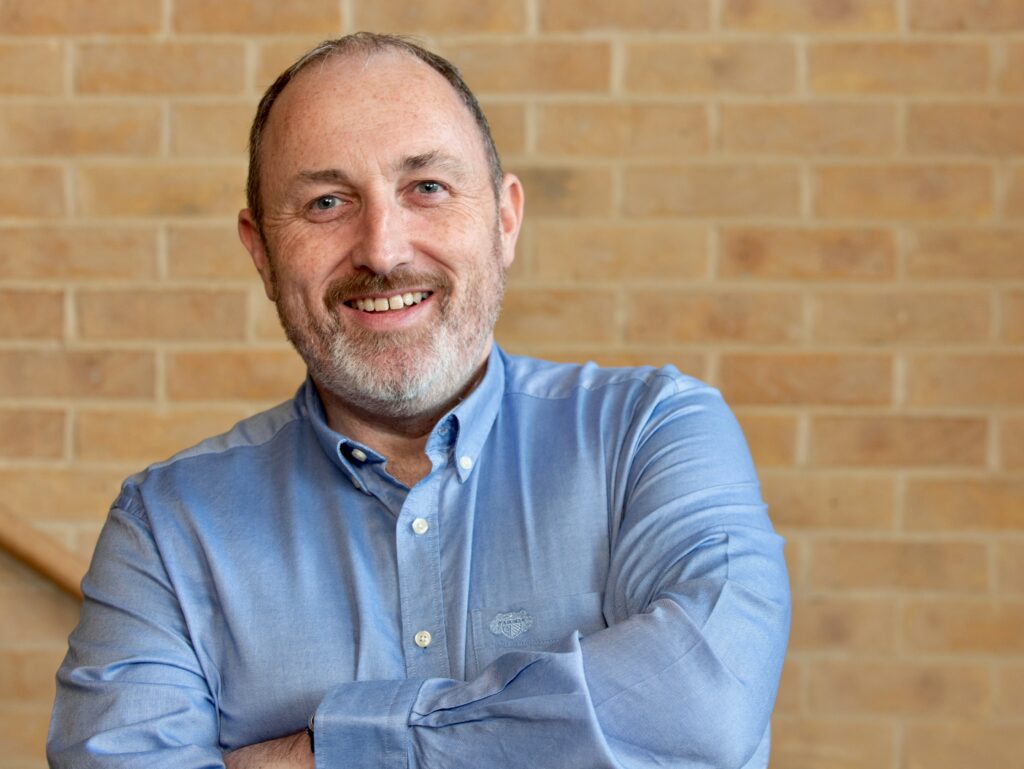Affiliated Primary
Care Researchers
Since its foundation in 2015, the HRB Primary Care CTNI has supported Principal Investigators to secure more than €25 million for Irish research.
Below you can explore the research we have supported, grouped by Principal Investigator followed by details of their successful grant applications supported by the HRB Primary Care CTNI.
- Dr Hilary Allen (University of Galway; Imperial College London)
- Professor Molly Byrne (University of Galway)
- Dr Emma Carr & Dr Brendan Staunton (Amara Therapeutics)
- Professor Declan Devane (University of Galway)
- Professor Joe Eustace (University College Cork)
- Dr Alice Le Bonniec (University of Galway)
- Dr Barbara Clyne (Royal College of Surgeons in Ireland)
- Dr Peter Hayes (University of Limerick)
- Dr Siobhán Masterson (Irish National Ambulance Service; University of Galway)
- Dr Karen Matvienko-Sikar (University College Cork)
- Professor Andrew W. Murphy (University of Galway)
- Professor Martin O’Donnell (University of Galway)
- Dr Helen O’Leary (University of Limerick)
- Dr Patrick Redmond (Royal College of Surgeons in Ireland)
- Dr Janice Richmond (Letterkenny University Hospital)
- Dr Sheena McHugh (University College Cork)
- Professor Susan Smith (Trinity College Dublin)
- Professor Andrew Smyth (University of Galway)
Dr Hilary Allen
- MB BCh U Dubl. MSc Allergy
- Affiliation: University of Galway, Imperial College London
- Institutional Profile: https://www.galwayclinic.com/medical-professionals/consultants-directory/dr/hilary/allen/105-174/
- Position(s): Honorary Clinical Fellow, University of Galway; GP with special interest in Allergy, Galway Clinic
- Research Interests: Anaphylaxis, Food Allergy, Eczema, Asthma, Hay Fever
- E-mail: hilary.allen@galwayclinic.com

Network-affiliated Studies
- Full Title: Preventing paediatric cow’s milk allergy overdiagnosis in primary care
- Funder & Scheme: Irish College of General Practitioners Career Support Grants 2019
- National/International: National
- Host Institution: Imperial College London, University of Galway
- Role of the Primary Care CTNI: Sponsor (Prof Andrew W. Murphy)
- Budget: €45,000
Previous research has shown that cow’s milk allergy affecting young children is overdiagnosed in England and low-allergy infant formula used to treat cow’s milk allergy is over-prescribed. This is an unnecessary cost to public health systems. Milk allergy diagnosis has been reported to have a negative impact on mother’s psychological health and to undermine breastfeeding. Many milk allergy guidelines for doctors are sponsored by infant formula industry and some guideline authors declare commercial relationships with formula industry.
As part of this grant funding, we conducted an initial study in 2020 to investigate if the problem of milk allergy overdiagnosis occurred outside of England. Milk allergy affects 1% of children under 2 years of age. In our study, we found that prescription rates of low-allergy infant formula used to treat milk allergy were up to 10-times greater than expected throughout the UK, Norway and Australia. This suggests milk allergy overdiagnosis in these countries and that overdiagnosis is an international problem. This study was published in an international allergy journal. The medical student (Shriya Mehta) who collaborated on this study and was co-supervised by Dr. Allen received the Barry Kay award for her presentation of this study’s findings at the British Society of Allergy and Clinical Immunology conference 2021.
We conducted a further study in 2021 to develop guidance for the diagnosis and management of milk allergy by a panel of multidisciplinary experts without commercial relationships with formula industry and without formula industry sponsorship. We included an advisory panel of parents with experience of milk allergy diagnosis or misdiagnosis in their children. We found that independent milk allergy guidance developed through consensus by a panel of experts and parent advisors produced recommendations with more restrictive criteria for diagnosing milk allergy or prescribing low-allergy infant formula and were more supportive of breastfeeding. This study was also published in an international allergy journal. The findings of this study were presented at an international allergy conference in 2022.
The final study funded by this grant commenced in 2022 and is ongoing. It involves a review of the primary care records of participants previously enrolled in a community-based clinical trial who were confirmed mis-diagnosed with milk allergy. The purpose of this study is to understand why these children were mis-diagnosed with milk allergy or prescribed a low-allergy infant formula unnecessarily. It is hoped that the findings of this study will help to develop an intervention to prevent milk allergy overdiagnosis in primary care.
Professor Molly Byrne
- B.A., M.Sc., Ph.D
- Affiliation: University of Galway
- Institutional Profile: https://www.universityofgalway.ie/our-research/people/mollybyrne/
- Position(s): Professor of Health Psychology, School of Psychology, University of Galway
- Research Interests: Chronic Disease Prevention and Self-management, Cardiovascular Disease, Diabetes, Promotion of Healthy Infant Feeding, Promotion of Physical Activity, Professional Behaviour Change, Evaluation of Behavioural Interventions
- E-mail: molly.byrne@universityofgalway.ie

Network-affiliated Studies
- Full Title: Implementation of Making Every Contact Count (MECC): developing a collaborative strategy to optimise and scale-up MECC
- Funder & Scheme: HRB Applied Partnership Awards 2019
- National/International: National
- Host Institution: University of Galway
- Role of the Primary Care CTNI: Co-applicants (Prof Andrew W. Murphy & Dr Patrick Murphy)
- Budget: €239,988.45
- Study Website: https://www.makingmeccwork.com/
Importance of the study:
Many chronic illnesses can be prevented if people adopt healthier behaviours. The Making Every Contact Count (MECC) programme, developed by the Irish Health Service Executive (HSE), aims to train all healthcare professionals to support patients to make healthier lifestyle choices during routine healthcare contacts. In this project, the HSE MECC Team and academic researchers will work together to create a strategy to optimise the roll-out of MECC at a national level and maximise the chances of programme success.
What we want to know?
What makes it easy or difficult for health services and healthcare professionals to support patients in making healthier lifestyle choices?
How do patients feel about discussing health behaviours and receiving support to change their behaviour during routine healthcare contacts?
How can we combine evidence into the MECC implementation strategy to make the roll-out of the programme successful in Ireland?
How will we do this?
Part 1: We will look at what influences healthcare professionals’ implementation of the MECC programme using surveys and interviews. The survey will examine what makes it easy or hard to implement the MECC programme from a staff perspective. We will carry out the interviews at sites that have been particularly successful at implementing MECC, to see what we can learn about staff and organisational factors in successful sites that can be applied nationally.
Part 2: We will interview patients about their attitudes to, and experiences of, discussing health behaviour with healthcare professionals and receiving support.
Part 3: We will conduct a review of the international literature to combine with the evidence from healthcare staff (Part 1) and patients (Part 2), and use these to develop the implementation strategy at a workshop with healthcare professionals, patients, the study team, and those in charge of implementing the programme.
- Full Title: Collaborative Doctoral Programme in Chronic Disease Prevention (CDP-CDP)
- Funder & Scheme: HRB Collaborative Doctoral Awards 2019
- National/International: National
- Host Institution: University of Galway
- Role of the Primary Care CTNI: Professor Andrew W. Murphy as Core Partner
- Budget: €1,499,420.13
- Study Website: https://www.universityofgalway.ie/cdp-cdp/
According to the WHO, chronic disease prevention is one of the major health challenges of the 21st century. Prevention programmes are urgently needed to reduce burden on patients and health services.
In Ireland, there is a national deficit in skills, leadership and capacity in the development, implementation and evaluation of evidence-based prevention. This Collaborative Doctoral Programme in Chronic Disease Prevention (CDPCDP) addresses this deficit. A transdisciplinary consortium, including clinical therapies, health psychology, nursing, medicine and implementation science, will deliver the CDP-CDP. The consortium includes national leaders and internationally recognised experts in diabetes, stroke and cardiovascular disease prevention; these are the leading chronic diseases in Ireland.and share the same behavioural risk-factors.
The CDP-CDP is a structured doctoral programme combining elements of the HRB doctoral training Programme in Population Health and Health Services Research (SPHeRE) with tailored CDP-CDP specific components, including:
- Induction Event.
- Annual two-day Expert-led Summer Schools, delivering training in specialist prevention relevant knowledge and competencies, and Patient and Public Involvement (PPI).
- Three annual trainee-led cohort meetings, facilitating peer-learning and collaboration.
- End-of-programme Knowledge Translation Event, to develop implementation strategies and disseminate research findings.
Five high-calibre multi-disciplinary trainees will lead projects, developed in collaboration with national stakeholders, in patient-focused research in chronic disease prevention across the lifespan, including:
- Implementation and scale-up of diabetes prevention.
- Optimising digital cardiac rehabilitation using the Multiphase Optimization Strategy.
- Development of a diabetes prevention program for women with previous gestational diabetes.
- Enhancing the role of Clinical Nurse Specialists to prevent stroke.
- Testing feasibility of a structured peer-support adjunct to Irish cardiovascular prevention.
Projects will be underpinned by a PPI strategy to enhance relevance, quality and impact. Graduates of the programme will be future national and international leaders in evidence-based chronic disease prevention research, research implementation, and policy development.
Dr Emma Carr & Dr Brendan Staunton (Amara Therapeutics)
- M.Ps.S.I, BA, H.Dip, MSc, PhD. (Emma Carr); BSc, MSc, MBA (Brendan Staunton)
- Affiliation: Amara Therapeutics
- Website: https://www.amaratherapeutics.com/
- Position(s): Chief Scientific Officer (Emma Carr); Chief Executive Officer (Brendan Staunton)
- Research Interests: Randomised trials including trial methodology; Systematic reviews and meta-analyses and other evidence syntheses
- E-mail: declan.devane@universityofgalway.ie

Network-affiliated Studies
- Funder & Scheme: Enterprise Ireland, Disruptive Technologies and Innovation Fund 2022
- National/International: National
- Host Institution: Amara Therapeutics, University of Galway, TEKenable Limited
- Role of the Primary Care CTNI: Consortium Partner
- Budget: €2,430,987.99
- Website: https://www.amaratherapeutics.com/
Professor Declan Devane
- PhD, PGDip, MSc, BSc, DipHE, RGN, RM, RNT
- Affiliation: University of Galway
- Institutional Profile: https://www.linkedin.com/in/prof-declan-devane-6b565953/
- Position: Professor of Health Research Methodology, Director of Evidence Synthesis Ireland, Scientific Director of Cochrane Ireland, Scientific Director of the HRB-Trials Methodology Research Network, Deputy Dean of the College of Medicine, Nursing and Health Sciences
- Research Interests: Randomised trials including trial methodology; Systematic reviews and meta-analyses and other evidence syntheses
- E-mail: declan.devane@universityofgalway.ie

Network-affiliated Studies
- Funder & Scheme: Health Research Board, Trials Methodology Research Network 2021
- National/International: National
- Host Institution: University of Galway
- Role of the Primary Care CTNI: Infrastructural Support
- Budget: €2,999,979.33
- Website: https://www.hrb-tmrn.ie/
- Funder & Scheme: HRB-HSE Infodemic Management Co-fund 2021
- National/International: National
- Host Institution: University of Galway
- Role of the Primary Care CTNI: Official Collaborator
- Budget: €299,992.77
- Website: https://ihealthfacts.ie/
Good healthcare requires people to make informed, evidence-based decisions about their health. However, many people are overwhelmed with information, particularly information about what they can do to improve or protect health. Increasing amounts of health information now spread faster and further through multiple channels, including the web, social media, instant messaging, television and radio. Much of this information is unreliable. Unreliable information leads to poorly informed choices, under-or over-use of health interventions (or treatments) and avoidable waste and human suffering.
Our aim is to further develop, use and evaluate the iHealthFacts initiative in mitigating and protecting against misinformation and its harmful effects.
We will create and share accurate and reliable information with target audiences to increase awareness and strengthen the resilience of individuals and communities to misinformation.
Professor Joe Eustace
- Affiliation: University College Cork
- Institutional Profile: http://research.ucc.ie/profiles/C002/jeustace
- Position: Professor of Medicine, Consultant Nephrologist and the Director of the Clinical Research Facility, Cork
- E-mail: j.eustace@ucc.ie

Network-affiliated Studies
- Funder & Scheme: HRB Clinical Research Facilities/Centres 2021
- National/International: National
- Host Institution: University College Cork
- Role of the Primary Care CTNI: Letter of Support
- Budget: €5,332,107.00
- Study Website: https://crf.ucc.ie/
Dr Alice Le Bonniec
- BA, MSc, MRes, PhD in Psychology
- Affiliation: University of Galway
- Institutional Profile: https://www.universityofgalway.ie/our-research/people/psychology/alicelebonniec/
- Position: Postdoctoral Researcher, School of Psychology, University of Galway
- Research Interests: Health Behaviour, Cancer, Screening, Public and Patient Involvement
- E-mail: Alice.LeBonniec@universityofgalway.ie

Network-affiliated Studies
- Funder & Scheme: Irish Cancer Society, Research Fellowship 2020 in Social, Nursing, and Allied Health
- National/International: National
- Host Institution: University of Galway
- Role of the Primary Care CTNI: Official Collaborator
- Budget: €148,822.64
Colorectal cancer is one of the most commonly occurring type of cancer worldwide. In Europe, it is the second most deadly cancer. It negatively impacts people’s quality of life and is costly for both health services and patients. If colorectal cancer is diagnosed early, patients can be cured. Screening is a very effective way of detecting the disease in its early stages. However, of those who are invited to take part in screening in Ireland, only 41.9% take part.
This project aims to improve colorectal cancer screening uptake to improve patient outcomes. This is done by developing a novel impactful intervention with key stakeholders in four steps:
1) We have formed a Stakeholder Steering Committee, including healthcare professionals, screening professionals and public and patient representatives, who advise us to make sure the project is relevant to the needs of these groups and fits with current policy and practice. A Public and Patient Involvement Advisory Panel has also been created, consisting of people who are targeted by the screening programme, and patients with experience of living with colorectal cancer. This panel attends stakeholder steering committee meetings and advises us on all aspects of the research.
2) Review of the scientific literature: We have gathered and summarized information from published qualitative studies examining why people do not participate in screening.
3) Workshops with members of the public, healthcare professionals and National Screening Service members to develop the intervention: Based on the results of two workshops, new materials aiming to improve colorectal cancer screening have been developed to be sent with the screening invitation letter.
4) A feasibility study of the intervention: This study includes interviews and questionnaires with members of the public having received the intervention material (vs. people who have not) to assess their attitudes, screening intention and participation in screening.
Dr Barbara Clyne
- BSc, M.Soc., PhD, PG Dip
- Affiliation: Royal College of Surgeons in Ireland
- Institutional Profile: https://www.rcsi.com/people/profile/barbaraclyne
- Position: Research Lecturer
- Research Interests: Population health and health services, evidence synthesis, general practice, medicines optimisation in older adults, patient safety
- E-mail: barbaraclyne@rcsi.com

Network-affiliated Studies
- Full Title: Evidence synthesis and translation of findings for national clinical guideline development: addressing the needs and preferences of guideline development groups
- Funder & Scheme: HRB Emerging Investigator Award 2019
- National/International: National
- Host Institution: RCSI
- Role of the Primary Care CTNI: Mentor (Prof Andrew W. Murphy)
- Budget: €727,136.21
National clinical guidelines aim to help healthcare providers and patients’ make decisions about appropriate healthcare. These guidelines use the best available evidence, gathered from national and international research, to develop recommendations on a wide range of topics. These include preventing and managing specific conditions to planning broader services and interventions to improve the health of communities. Using clinical guidelines can improve health outcomes for patients, reduce differences in practice and improve the quality of decisions that patients and healthcare staff have to make. There are many approaches to how we find, bring together (synthesise) and present national and international research (evidence) on a specific topic. These approaches are known as evidence synthesis methods. Examples include systematic reviews and rapid reviews of research. Groups of healthcare providers and patients (known as guideline development groups) turn this evidence into recommendations and again, there are many approaches to how this may be done. This project aims to develop a toolkit to provide guidance on selecting approaches to evidence synthesis in the development of Irish national clinical guidelines. We will also explore how the results of evidence synthesis methods are presented and how guideline development groups use this evidence to develop recommendations. Overall, we aim to ensure the quality of Irish national clinical guidelines. To do this we will first look at the acceptability of different evidence synthesis methods with the people involved in developing guidelines. This will help to establish guidance on which methods should or should not be used. We will develop and test different ways of presenting the findings of evidence synthesis methods that are acceptable to all users, healthcare providers and patients. Lastly we will explore the ways guideline development groups use evidence when they are coming up with recommendations
Dr Peter Hayes
- MD (Res.),MMedEd, MRCPI, CSCT-MICGP, MB, BAO, Bch, BMedSci (Pathology), Associate Diploma in the Teaching of Speech & Drama (ATCL), Certificate in Theatre and Performance
- Affiliation: University of Limerick
- Institutional Profile: https://www.ul.ie/research/dr-peter-hayes
- Position: Senior Lecturer in GP
- Research Interests:Hypertension, Cardiovascular Disease, Medication Adherence, General Practice, Devised Theatre in Medical Students, Fitness for Purpose-Curriculum and Medical Students
- Email: peter.hayes@ul.ie

Network-affiliated Studies
- Full Title: Development of a general practice cohort of patients with apparent treatment resistant hypertension
- Funder & Scheme: Irish College of General Practitioners, Career Support Grant 2016
- National/International: National
- Host Institution: University of Galway
- Role of the Primary Care CTNI: Sponsor (Professor Andrew W. Murphy)
- Budget: €45,000
The Irish College of General Practitioners’ ‘Career Support Grant’ provides GPs the opportunity to take on research projects, over a period of 3 years, that would otherwise be unachievable. Candidates are required to pursue a higher degree (Doctorate or Masters) during this period. The stipend allows working GPs to block off time from clinical practice to achieve the research goals. It is reviewed annually.
Dr Siobhán Masterson
- BSc MSc PhD
- Affiliation: Irish National Ambulance Service; University of Galway
- Institutional Profile: https://www.researchgate.net/profile/Siobhan-Masterson-2
- Position: Service Lead for Clinical Strategy and Evaluation, Irish National Ambulance Service; Primary Investigator, Discipline of General Practice, University of Galway
- Research Interests: Prehospital emergency care; resuscitation; epidemiology; health services research
- Email: siobhan.masterson@hse.ie

Network-affiliated Studies
- Full Title: Out of Hospital Cardiac Arrest and Community First Response: international best practice, national consultation and prospective evaluation
- Funder & Scheme: HRB Applied Partnership Awards, 2018
- National/International: National
- Host Institution: University of Galway
- Role of the Primary Care CTNI: Co-applicant (Professor Andrew W. Murphy)
- Budget: €249,689
Cardiac arrest occurs when the heart suddenly ceases to pump blood around the body. The term ‘Out-of-Hospital Cardiac Arrest’ (OHCA) is used to describe incidents where cardiac arrest occurs unexpectedly and is responded to by statutory emergency medical services (EMS). OHCA causes approximately 1,900 unexpected deaths in Ireland every year. Death from OHCA is frequent but not inevitable. If OHCA is recognised quickly, good quality cardiopulmonary resuscitation (CPR) is started immediately, and a defibrillator is used to shock the heart back into being able to pump blood around the body, the chance of survival can be dramatically increased.
In Ireland, we live in a wide variety of settings, from inner cities to one-off houses in rural countryside and the reality is that EMS cannot reach every person on time every time. As a result, individuals and groups have provided a community response to OHCA for many years. While we collect data on OHCA management through our national register, information on community response is lacking. The aim of this project is make collection of data on community response a routine part of OHCA data collection and identify opportunities to strengthen community response in Ireland. We will investigate how OHCA community response works internationally and consult with Irish community responders and EMS on how data should be collected and how community response can best be supported. Information generated will enable us to fully understand the challenges to community response in Ireland and help service providers to work with communities to overcome them. A data collection method will be trialled, and the acceptability and usefulness of the method will be assessed. This process will lead to a data collection process for community response which is based on evidence, nationally agreed and modified to make it workable and sustainable in the longer term.
- Full Title: Rapid response and learning for later: establishing high quality information networks and evaluation frameworks for the National Ambulance Service response to COVID-19
- Funder & Scheme: HRB COVID-19 Pandemic Funding
- National/International: National
- Host Institution: University of Galway
- Role of the Primary Care CTNI: Co-applicant (Professor Andrew W. Murphy)
- Budget: €109,138.75
The National Ambulance Service (NAS) is to the forefront of the national response to the COVID-19 pandemic. As directed in Ireland’s National Action Plan, NAS have significantly expanded their prehospital services. Additionally, most other health services rely on NAS’s capacity to assess, transport and/or treat COVID-19 patients. A climate of innovation and adaptation means NAS needs to learn from other ambulance services, and effectively share the Irish experience. An evaluation method for COVID-19 imposed change is needed so planning for subsequent waves or pandemics is built on evidence, and to identify innovative practice for mainstreaming into routine service provision. This research aims to provide the information networks and evaluation tools that will help NAS meet these requirements.
The first work package of this research will be on existing/ongoing work, producing ambulance-specific research and information updates for NAS. Secondly, an international network of senior ambulance and research personnel will be established (‘AMBULANCE+COVID19’ network) and a short-survey instrument, the Emergency Medical Services Five Question Survey (EMS-5QS), will be developed.
The EMS-5QS will enable AMBULANCE+COVID19 participants to nominate a topic for which they would like to hear about the experience and practice of other ambulance services. Multiple surveys covering a range of topics will run over the course of the research. Finally, an evaluation framework will be developed to enable NAS determine innovations: (1) for reactivation in a subsequent wave or new pandemic; (2) to be sustained as part of routine service. The framework will be developed with the collaboration of NAS and the HSE Quality Improvement Division.
The Research Team includes expertise from academia, ambulance services and the National Public Health Emergency Team. Ability to mobilise resources quickly and utilise ready-made international networks will ensure a successful project that can inform future information sharing methodologies and pandemic planning for ambulance services internationally.
Dr Karen Matvienko-Sikar
- BA(Hons), HDip, PGDip, MA, PhD
- Affiliation: University College Cork
- Institutional Profile: http://research.ucc.ie/profiles/C010/karenmsikar
- Position: Lecturer in the School of Public Health, University College Cork
- Research Interests: Maternal and Child Health, Childhood Obesity, Infant feeding, Perinatal Mental Health, Intervention Development, Outcomes Research
- E-mail: karen.msikar@ucc.ie

Network-affiliated Studies
- Full Title: A Standardised Approach to Measuring Infant Feeding Outcomes to Prevent Childhood Obesity
- Funder & Scheme: HRB Emerging Investigator Awards for Health 2022
- National/International: National
- Host Institution: UCC
- Role of the Primary Care CTNI: Collaborator (Prof Andrew W. Murphy) & Infrastructure Agreement
- Budget: €791,130
I previously identified what infant-feeding outcomes are essential to measure in studies to prevent childhood obesity. The essential next step is to determine how to measure these outcomes. The proposed research will develop a standardised outcome measurement set, providing researchers, practitioners, and policymakers with a toolkit of measurement instruments (e.g., questionnaires, clinical assessments) to evaluate infant-feeding interventions better, in order to prevent childhood obesity.
- The proposed research comprises three key steps:
Systematically review the research literature and identify existing measurement instruments to determine how outcomes are currently measured. - Review the literature to find evidence about the identified measurement instruments’ quality and determine if they are fit-for-purpose.
- Consult with parents, healthcare professionals, researchers, and policymakers via an online international survey, followed by a 2-day meeting, to decide what measurement instruments should be included in the standardised outcome measurement set and how best to ensure the measurement instruments are used in research, practice, and policy.
Dr Sheena McHugh
- PG Cert Digital Education, PG Cert Implementation Science, PG Dip Teaching & Learning, PhD Health Services Research, MSc Health Psychology, BA Psychology
- Affiliation: University College Cork
- Institutional Profile: http://research.ucc.ie/profiles/C010/smchugh
- Position: Senior Lecturer, School of Public Health, University College Cork
- Research Interests: Implementation Science, Health Services Research, Diabetes Mellitus, Ageing Research, Qualitative Research Methods, Mixed Methods, Health Policy Analysis
- E-mail: S.McHugh@ucc.ie

Network-affiliated Studies
- Full Title: Feasibility of an intervention to improve attendance for diabetic retinopathy screening
- Funder & Scheme: HRB Definitive Interventions and Feasibility Awards 2017
- National/International: National
- Host Institution: University College Cork
- Role of the Primary Care CTNI: Collaborator (Ms Edel Murphy)
- Budget: €243,393
- Study Website: https://www.ucc.ie/en/diabeteseyescreening/
- To have healthcare professionals, researchers and patients agree on the best way to increase screening registration, consent and attendance.
- To carry out a pilot study in which general practices are assigned to receive the intervention or be part of a control group (who wait 6 months) so that we can investigate the feasibility of delivering the intervention, how many practices can be recruited to take part and stay in the study, how many people are registered for and attend screening, and whether practices deliver the intervention as planned.
- To interview general practice staff and patients with type 2 diabetes to explore their opinions on the way the intervention is delivered, the type of information we collect and the way it is collected.
- To estimate the economic cost of delivering the intervention in primary care.
- To decide whether it is appropriate to continue to a larger study that would test whether the intervention improves screening registration and attendance.
Professor Andrew W. Murphy
- MB MD FRCGP MICGP DCH DIMC(RSC) MClinEpi
- Affiliation: University of Galway
- Institutional Profile: https://www.universityofgalway.ie/our-research/people/medicine/andrewmurphy/
- Position: Foundation Professor, Discipline of General Practice, University of Galway; Director, HRB Primary Care CTNI.
- Research Interests: High blood pressure, multimorbidity, antimicrobial resistance.
- E-mail: Andrew.Murphy@universityofgalway.ie

Network-affiliated Studies
- Full Title: MY COMRADE PLUS: A pilot cluster randomised controlled trial, for patients with multimorbidity, of the MultimorbiditY COllaborative Medication Review And DEcision Making intervention (MY COMRADE), practice based pharmacists (PBP’s) or PBP’s plus an adaptation of MY COMRADE
- Funder & Scheme: Cross-border Healthcare Intervention Trials in Ireland Network (CHITIN), 2018
- National/International: International
- Host Institution: University of Galway
- Role of the Primary Care CTNI: Principal Investigator (Prof. Andrew W. Murphy)
- Budget: €535,505
- Full Title: Maximising Medication adherence and Night-Time dosing: Lowering to target the blood pressure of older patients with hypertension: A cluster randomised feasibility study in general practice
- Funder & Scheme: HRB Definitive Interventions and Feasibility Awards, 2020
- National/International: National
- Host Institution: University of Galway
- Role of the Primary Care CTNI: Lead Applicant (Prof. Andrew W. Murphy); Co-Lead Applicant (Prof. Gerry Molloy)
- Budget: €399,999.14
High blood pressure can lead to strokes and heart disease. Despite treatment, many patients continue to have uncontrolled blood pressure. In Ireland, we do very badly in this area – the worst of sixteen high income countries worldwide. For example, the proportion of Irish male patients with controlled blood pressure is 17% – in Canada, 69%. Our study will address this.
Over three years, we will develop a new treatment (our ‘intervention’) for people aged 65 and older, whose blood pressure remains high despite taking two or more medications. Our intervention will have two goals:
1. Support people to take their medications as prescribed
2. Support doctors to act in lowering patients blood pressure when they recognise the need to do so.
For the first 12 months we will, with patients and health staff, design and further develop the intervention. We will then run (months 13-36) a pilot cluster randomised controlled trial to see if it is worthwhile to go to a full trial.
We will ask 120 people attending 8 different GP practices to take part. We will measure their blood pressure over 24 hours and how much blood pressure medication is present in their urine. In one half of GP practices, people will be treated as they currently are. In the other half, based on the above intervention, people will agree a personalised action plan with their GP. Practices will follow-up patients after one and six months.
We will record what patients and GPs think about the intervention. This will determine if it can be improved, and if it looks like a promising treatment.
Finally, for people who are thinking about taking part in this study, we will see if it is better to give them information on a tablet computer, rather than on printed pages.
Professor Martin O'Donnell
- MB MRCPI PhD
- Affiliation: University of Galway
- Position: Executive Dean, College Medicine Nursing and Health Sciences, Professor of Neurovascular Medicine at University of Galway, Consultant Stroke Physician at Galway University Hospitals
- Research Interests: Stroke, cardiovascular, cognition, prevention, clinical trials, epidemiology
- E-mail: martin.odonnell@universityofgalway.ie

Network-affiliated Studies
- Full Title:Community Risk-based monitoring for Atrial Fibrillation Trial (CRAFT)
- Funder & Scheme: HRB Definitive Interventions and Feasibility Awards (DIFA) 2017
- National/International: National
- Host Institution: University of Galway
- Role of the Primary Care CTNI: Co-applicant (Professor Andrew W. Murphy)
- Budget: €886,525
Atrial fibrillation, an irregular heart-beat, is common, affecting ~7% of people over 65 years of age. It is a major cause of stroke, increasing the risk of stroke 5-fold, and about one-third of patients with acute stroke have atrial fibrillation. Once detected, there are very effective treatments to prevent stroke – oral anticoagulant therapy (e.g. warfarin or newer anticoagulants) reduces the risk of stroke by about 80% in people who take these medications. However, atrial fibrillation is frequently silent (no symptoms) and often intermittent, and can be difficult to detect. In many cases, the first diagnosis of atrial fibrillation happens when people present to hospital with disabling stroke, even though it could have been prevented if atrial fibrillation was detected. One of the most important challenges in stroke prevention is to find better ways of detecting atrial fibrillation in people who are unaware they have it. Previous studies have shown that a pulse check by a General Practitioner picks-up atrial fibrillation in about 1 in 120 people over 65 years. However, this approach is not sufficient for finding atrial fibrillation when it ‘comes and goes’ (a single pulse check is likely to miss it). What is required is continuous measurement of the heart rhythm, but until recently, technology to measure continuous heart rhythm has been inadequate. In this trial, we evaluate a novel approach to screening high-risk people, with extended heart monitoring, and compare this to standard care in general practice. We will also evaluate whether self-screening for atrial fibrillation, by regular pulse checks by themselves and/or family members, can pick-up atrial fibrillation. Improving our ability to detect atrial fibrillation will have a major impact on stroke prevention; for every 30 new cases of atrial fibrillation identified, we will prevent one stroke each year.
Dr Helen O'Leary
- PhD, MSc Clinical Therapies, BSc (Physio)
- Affiliation: University of Limerick
- Institutional Profile: https://www.ul.ie/schoolalliedhealth/content/dr-helen-oleary
- Position: Postdoctoral Researcher, School of Allied Health, University of Limerick; Clinical Specialist Physiotherapist at University Hospital Kerry
- Research Interests: Knee osteoarthritis and degenerative meniscal tears, pain mechanisms and exercise
- E-mail: Helen.OLeary@ul.ie

Network-affiliated Studies
- Full Title: Exercise Therapy for Degenerative Meniscal Tears in the Primary Care – a Feasibility Cluster Randomised Controlled Trial
- Funder & Scheme: HRB Clinician Scientist Postdoctoral Fellowship 2020
- National/International: National
- Host Institution: University of Limerick
- Role of the Primary Care CTNI: Collaborator
- Budget: €219,603.00
Knee pain due to a degenerative meniscal tear is a common joint condition seen in Irish orthopaedic clinics. Changes to the knee joint and meniscus (cartilage within the knee that helps cushion the joint) occur normally with age but can become painful in some middle-aged adults. Exercise is recommended as the main treatment to aid recovery, while an arthroscopy (camera in the knee) to remove torn cartilage does not provide any additional benefit. Despite this many patients in Ireland with degenerative meniscal tears are referred to an orthopaedic surgeon by their GP. Meanwhile exercise in an underused treatment, according to interviews with patients carried out by our research team. The overall aim of this project is to improve how people with degenerative meniscal tears are managed in the community setting by their GP and provide them with a good quality exercise programme. This could ultimately reduce the numbers referred to hospital orthopaedic clinics by their doctors. In preparation for carrying out a larger research study to test this theory, this project will run a smaller study to ensure treatment can be delivered as planned and it is acceptable to patients and GPs. Firstly, GPs will be interviewed to gain insight into how they treat this knee problem. A package of education, support and resources will be developed for GPs and patients, with input from a panel of interested parties (patients and doctors, physiotherapists and orthopaedic specialists). Next, this package of care specifically will be tested out in a study with approximately 12 GPs and 40 of their patients. Changes in clinical behaviour and patient symptoms will be compared to a group who are managed as usual by their doctor. Finally, all GPs and patients will complete a satisfaction survey with some patients and doctors providing more in-depth feedback.
Dr Patrick Redmond
- MB BCh BAO PhD MMEd MRCPI MICGP FRACGP FHEA PG Dip (Statistics)
- Affiliation: Royal College of Surgeons in Ireland
- Institutional Profile: https://www.rcsi.com/people/profile/PREDMOND
- Position: General Practitioner and Senior Lecturer in General Practice
- Research Interests: Primary care; Cancer; Early Detection
- E-mail: predmond@rcsi.ie

Network-affiliated Studies
- Funder & Scheme: HSE/NDTP/ICGP, Post CSCST Fellowship 2022-2023
- National/International: National
- Host Institution: RCSI
- Role of the Primary Care CTNI: Infrastructural Support
- Budget: €89,000
This fellowship provides a structured and well supported programme to establish the fellow as an early career clinical academic GP with a particular area of interest, strong collaborative network, and opportunity to progress to doctoral training.
The focus of the academic and clinical programme is to optimise the diagnosis of symptomatic cancer within primary care. Cancer care is a major and costly element of HSE services. Over 85% of cancer patients present with symptoms – usually to primary care. Why patients consult their doctors is not well defined, how and why GPs make diagnostic errors or delays is also not well understood. Improved cancer detection may arise from better understanding of risk prediction as well as patient, clinician, and system factors affecting current diagnostic pathways.
The fellowship will seek to explore and formalise these queries by: 1) Establishing a primary care focussed Early Cancer Detection Research Partnership 2) a Research Prioritisation Project via coproduction methods and 3) a feasibility study to build a unique primary care focussed research database derived from routinely collected GP data.
- Funder & Scheme: HSE/NDTP/ICGP, Post CSCST Fellowship 2022-2023
- National/International: National
- Host Institution: RCSI
- Role of the Primary Care CTNI: Infrastructural Support
- Budget: €89,000
Cancer research (and funding) has traditionally been focussed on laboratory science, biomarkers, genetic and chemotherapy trials. The aim of this workshop is to increase the capacity and sustainability of primary care focussed clinical cancer detection research in Ireland. It is increasingly recognised that involving patients in research design, analysis, and dissemination is essential to realise the full potential of translational research.
Therefore, prior to undertaking research in primary care and early cancer detection in Ireland, there is a need for a prioritisation exercise. The co-production of consensus-derived research questions in early cancer detection will provide a platform for funders, researchers, and industry to focus on the issues most important to
patients/carers and their doctors.
Aim: To co-design a ‘Top Ten’ list of early cancer diagnosis primary care focussed research questions in Ireland where little or no existing research exists.
Method: This Research Networking Award-funded workshop will use the internationally recognised James Lind Alliance Priority Setting Partnership methodology. This will bring together patients, carers, clinicians, policymakers, and researchers to jointly identify priorities for research.
Dr Janice Richmond
- BSc (Hons), PGDip, DNSc, RN, RNP, RANP
- Affiliation: Letterkenny University Hospital
- Position: Advanced Nurse Practitioner, Oncology Department, Letterkenny University Hospital
- Research Interests: Oncology, Nursing, Survivorship, Oral Anti-cancer Medications.
- E-mail: JaniceP.Richmond@hse.ie

Network-affiliated Studies
- Full Title: Establish and analyse the safety and efficacy of an integrated care model for the management of patients receiving oral anti-cancer agents in the community by an Advanced Nurse Practitioner: A pilot study
- Funder & Scheme: Irish Cancer Society, Cancer Nursing Research Award 2019
- National/International: National
- Host Institution: Letterkenny University Hospital & University of Galway
- Role of the Primary Care CTNI: Academic Research Lead (Prof Andrew W. Murphy)
- Budget: €159,981.76
Professor Susan Smith
- MD MSc BCh BAO MRCPI FRCGP MICGP
- Affiliation: Trinity College Dublin
- Institutional Profile: https://www.tcd.ie/medicine/staff/SUSMITH
- Position: Professor of General Practice, Trinity College Dublin; General Practitioner, Inchicore Family Doctors; Associate Director, HRB Primary Care CTNI.
- Research Interests: Multimorbidity, chronic conditions, interventions, trials, health inequalities
- E-mail: susmith@tcd.ie

Network-affiliated Studies
- Full Title: Supporting prescribing in Irish primary care: a non-randomised pilot study of a GP practice-based Pharmacist Medicines Optimisation Programme (GP-MOP)
- Funder & Scheme: HRB/HSE/RCPI, Research Collaborative in Quality and Patient Safety, 2017
- National/International: National
- Host Institution: RCSI
- Role of the Primary Care CTNI: Principal Investigator (Prof Susan Smith); Official Collaborator
- Budget: €259,941.00
- Funder & Scheme: HRB Collaborative Doctoral Awards, 2018
- National/International: National
- Host Institution: RCSI
- Role of the Primary Care CTNI: Principal Investigator (Prof Susan Smith); Core Partner (Prof Andrew W. Murphy)
- Budget: €1,350,000.00
This application outlines a Structured Doctoral Training Programme for four PhD students with clinical and research backgrounds. The focus is on primary care delivery for patients who are referred to as having complex multimorbidity, which means that they have multiple long term conditions and are often on ten or more regular medicines. We have brought together a consortium of international, experienced senior researchers and PhD educators to address this topic.
Patients with complex multimorbidity have poorer health outcomes and significantly higher healthcare costs. When prearing this application, we met with a group of patients. They told us about the challenges people face following the advice they receive about managing their conditions along with attending doctors and other health professionals. They also highlighted the hidden costs that patients face in managing their conditions. The proposed research that the PhD students will undertake will address these issues.
This programme will provide evidence and support development of patient-focused interventions to improve care and outcomes in complex multimorbidity. PhD students will be equipped with skills for academic, clinical and policy settings. The programme is supported by a specially convened Patient and Public Participation Panel led by our collaborators from the Primary Care Clinical Trials Network Ireland to ensure a clear focus on patient priorities. The consortium includes post-doctoral and senior experienced academics from a range of disciplines and settings to provide an appropriate blend of expert programme management, supervision and peer support and an opportunity for national and international PhD placements.
This collaborative doctoral programme in complex multimorbidity in primary care will create a cohort of skilled post-doctoral students who can make a significant future impact on health outcomes for patients with complex multimorbidity.
Professor Andrew Smyth
- MB, BCh, BAO, MMedSc, PhD
- Affiliation: University of Galway
- Institutional Profile: https://www.universityofgalway.ie/our-research/people/andrewsmyth/
- Position: Professor of Clinical Epidemiology at University of Galway, Director of the HRB Clinical Research Facility Galway, Consultant Nephrologist at Galway University Hospitals
- Research Interests: Nephrology, cardiovascular disease, epidemiology, clinical research methodology, clinical trials, observational studies, systematic reviews, meta-analysis.
- E-mail: andrew.smyth@nuigalway.ie

Network-affiliated Studies
- Full Title: Health Research Board Clinical Research Facility Galway
- Funder & Scheme: HRB Clinical Research Facilities/Centres (CRF/C) 2021
- National/International: National
- Host Institution: University of Galway
- Role of the Primary Care CTNI: Letter of Support
- Budget: €3,000,000
- Study Website (if applicable): https://www.universityofgalway.ie/hrb_crfg/
The HRB Clinical Research Facility Galway (HRB-CRFG) is essential to help local and national researchers in generating ideas for clinical trials. HRB-CRFG is particularly important in the design, execution and completion of these clinical trials that aim to improve the health of patients and the general public, as we provide key knowledge, experience, physical space, systems and equipment to ensure that all trials are completed in the best way possible. HRB-CRFG developed through essential partnership between NUI Galway, Saolta University Health Care Group and the Health Research Board. HRB-CRFG staff have extensive experience in conducting a large range and variety of clinical trials (e.g. medications or devices for diagnosing, preventing or treating health problems), within Ireland and across the world (e.g. collaborators, other Irish Universities, companies). Since HRB-CRFG was established in 2008, we led the growth of clinical trials, including trials where researchers at NUI Galway planned, designed and executed all stages. From a small team in 2008, HRB-CRFG grew into a central core team that supports seven groups of researchers in conducting a large number of trials across a wide range of clinical areas. Key to the success of HRB-CRFG is that we provide all systems and departments (e.g. clinical experience, trial design, regulations, business and handling of data) needed to safely and effectively complete clinical trials, based on laws and standards. We provide these services to researchers in Galway, but also provide services to researchers across the country, including particular strengths in the handling of clinical trial data, where we work with researchers in Galway, Cancer Trials Ireland, University College Dublin and Trinity College Dublin. HRB-CRFG will allow patients and researchers across Ireland to be involved in and/or design clinical trials that will improve the health of the local, national and international population.

